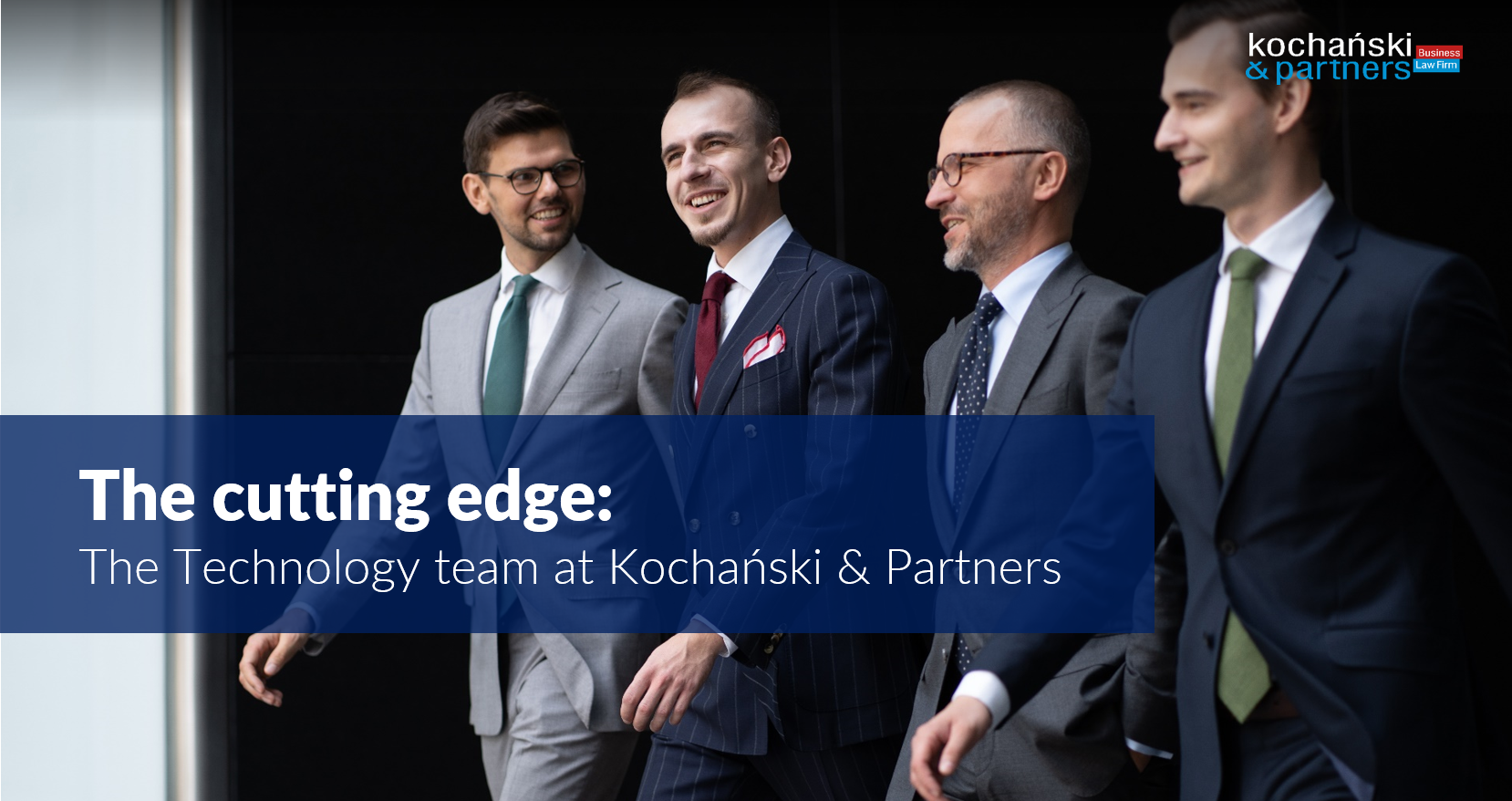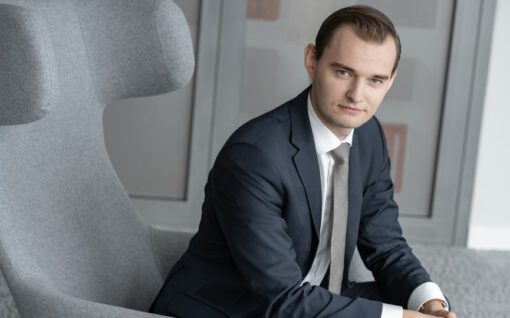Blockchain, Cloud Computing, and Artificial Intelligence are more than buzzwords – they are concepts critical to the rapid technological development occurring across all industries. Our experts Piotr Galka, Piotr Kaniewski and Szymon Ciach share their views on the technology market trends with the CEE Legal Matters magazine.
CEELM: What it is the current cloud computing market status in Poland/CEE?
Szymon Ciach: It is growing dynamically. According to the Computerworld TOP200 report, in 2019, companies interviewed for the study reported an almost 30% increase in net revenue from the sale of cloud services. In the same report, 51% of those surveyed associated the future of their company with cloud technologies. We also notice a strong focus on adopting cloud technologies within the financial sector, as business needs and regulatory frameworks mature. Cloud datacentres are also on a rising tide in Poland. In 2019 Google announced a plan to invest up to USD 2 billion in a Polish data center, and Microsoft followed suit in 2020 by announcing a new cloud data center outside Warsaw. As data residency is a sensitive compliance topic, especially in the financial sector, we expect the new CEE cloud regions of leading suppliers to provide strong incentive for wider cloud adoption.
CEELM: What are the typical cloud projects you work on?
Piotr Galka: The Coronavirus pandemic has greatly accelerated the need to adopt cloud computing technology. In line with this, our main role is to help our clients adopt cloud technology in a secure way.
Our experience of working with clients from regulated industries has allowed us to help large financial organizations, which operate in a regulated environment. This past year we helped financial organizations to implement Microsoft365 and AWS services, and we are now in the process of helping a large international financial group build a European marketplace based on cloud services.
CEELM: What are the key obstacles to cloud computing adoption?
Piotr Galka: In my view, a major call is now sounding the need for rapid adoption of cloud technologies. On the other hand, there are still very few specialists on the market who are familiar with cloud technology, which causes significant challenges for organizations wishing to implement it.
CEELM: What are the legal challenges for an enterprise in Poland to use cloud?
Piotr Kaniewski: We are seeing two major legal challenges concerning cloud computing. The first is data protection – in particular, personal data protection. Although most of these problems are covered by cloud providers (they’re quite common across the EU), fires break out from time to time. I’m thinking, for example, about the recent CJEU judgement in the Schrems II case, which made it very difficult to transfer personal data to the USA.
The second and even greater challenge is sectoral regulation, especially banking regulation. Polish legislation regarding liability and subcontracting chains is quite unique in Europe and requires cloud providers to take a specific approach to Polish banks. Moreover, ensuring the compliance of cloud contracts with regulatory requirements continues to pose an intellectual challenge. The Polish Financial Supervisory Authority still shows little sensitivity to the specifics of highly standardized cloud contracts. But we’re not complaining; it’s much better than it was two or three years ago, and the future looks very positive.
CEELM: What is the future regulatory landscape for cloud computing in Europe?
Szymon Ciach: We can expect a tsunami of regulations to arrive in the near future, as cloud computing is considered fundamental to the development of the EU’s data Digital Single Market. The European Commission is working intensively to execute its Data Strategy, aiming to ensure a more secure and interoperable cloud infrastructure and services for European businesses. The idea is to set up a framework for access, transparency, and compliance for cloud services within the EU. To this end, it is planned, among other things, to facilitate European marketplaces for cloud services, where users can access EU-compliant services. Interestingly, the European Commission expects a shift by 2025 from centralized computing to 80% of all data being processed in smart devices closer to the user (edge computing). This is strongly related to the incoming new generation of telecommunication technologies – 5G – which will multiply the computing power of small devices. Regulatory attention will be paid to the free flow of non-personal data, cybersecurity, and cloud use by the financial sector.
The financial sector and its IT suppliers should be especially vigilant, as the European Commission has recently formulated a Proposal for a Regulation on digital operational resilience for the financial sector, together with an associated directive. These regulations will set up new, common, GDPR-like rules for mitigating ICT risks by financial institutions. This regulation will certainly have a knock-on effect on cloud services within the EU as well.
CEELM: Are the problems of cloud computing relevant to the adoption of other technologies?
Piotr Kaniewski: They’re key to the adoption of artificial intelligence solutions. Many of them are being offered by cloud providers as part of cloud services. Even if not, AI solutions need the cloud, which is not only an environment for AI development and training but also a source of computing power and storage for datasets analysis to be carried out by AI.
It’s hard to imagine the widespread use of AI in Poland without the necessary supporting cloud infrastructure, which can mean a critical risk for the Polish economy. If participants in the market do not respond to competitors’ rapid adoption of cloud and AI, they may simply be left behind as competitors gain an unreachable market advantage. So you can see how significant it is that these changes are adopted as quickly as possible.
This Article was originally published in Issue 7.12 of the CEE Legal Matters Magazine.



